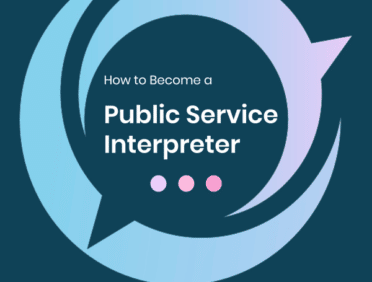Interpreting: Bridging Linguistic Divides for Inclusive Communication
Interpreting is a critical component of efficient communication, allowing people who speak different languages to engage fluidly and understand one another’s messages. Interpreters play an important role in overcoming linguistic gaps and encouraging collaboration in a variety of settings, including judicial processes, medical consultations, commercial negotiations, and community meetings.
Legal Settings
In legal settings, interpreters enable communication between defendants, witnesses, lawyers, judges, and other stakeholders, ensuring that everyone involved understands and can fully participate in the process. Their function is especially important in ensuring fair trials and preserving the norms of justice.
Medical Settings
In medical settings, interpreters help patients effectively communicate their symptoms, worries, and medical histories to healthcare providers, and vice versa. This enables more accurate diagnosis, treatment, and informed decision-making, ultimately increasing healthcare outcomes and patient satisfaction.
Business Settings
In business, interpreters help parties with various linguistic and cultural backgrounds negotiate, present, and discuss. Interpreters assist organisations in forming relationships, expanding into new markets, and effectively navigating foreign transactions by allowing for clear and effective communication.
Community Settings
Interpreters play an important role in community settings, facilitating communication in multicultural and multilingual contexts. This includes public events, social services, educational settings, and religious gatherings, where interpreters ensure that everyone, regardless of language skill, can fully participate and access necessary services.
Challenges and Obstacles Faced by Interpreters
Interpreting can present numerous obstacles and uncertainties, raising concerns regarding credentials, norms, ethical considerations, and practical aspects of the job. Individuals and organisations may seek clarification on various parts of the interpreting process, such as comprehending the different methods and forms of interpreting and identifying competent interpreters for certain language pairings.
Despite these challenges, interpreters remain committed to their work, seeking to maintain professionalism, accuracy, confidentiality, and impartiality in all assignments. Interpreters’ skill and commitment continue to cross linguistic boundaries, increase understanding, and contribute to a more inclusive and integrated society.
Interpreting FAQs
Interpreting is the vocal representation of spoken communication from one language to another, whereas translation is the written conversion of text from one language to another. While both interpreting and translation entail the transfer of meaning across languages, interpreting is usually done in real time to facilitate communication between people who speak different languages during face-to-face encounters, meetings, conferences, or events.
Translation, on the other hand, allows for greater contemplation and revision because it requires dealing with written resources, such as books, articles, legal papers, or websites, to ensure correctness and clarity in the target language.
Strictly speaking, types of interpreting refer to where the interpreting takes place, or how it is delivered, and there are three main types:
Face to face interpreting is where the interpreter attends in person at a venue (e.g. a hospital) and the other participants are also present in person.
Telephone interpreting takes place over the phone, often with the service provider and service user in a professional location (e.g. a job centre) and the interpreter at home or in a call centre.
Video Remote Interpreting takes place over videoconference software, with the interpreter being at home or in a secure location (e.g. a dedicated room in a court building). The other participants could both be in differing locations such as a court room and a prison.
Consecutive, Simultaneous, and whispered interpreting are the most common modes of interpreting employed in the United Kingdom. Consecutive interpreting is the most common of all, which entails the interpreter relaying the speaker’s content following a pause. Simultaneous and whispered interpreting entails communicating the speaker’s content in real time, often using specialised equipment, making it ideal for large conferences or events with multilingual audiences. Whispered interpreting includes the interpreter covertly communicating the message to one or a few listeners, usually without the use of equipment (e.g. in a courtroom).
Becoming a professional interpreter in the UK often entails developing language proficiency and cultural competency, completing suitable qualifications to receive certification or accreditation from recognised agencies, and getting practical experience by joining interpreting agencies and completing work for them. Prospective interpreters can get interpreting qualifications from providers such as Learn Q.
Once qualified, completing volunteer work and freelancing projects can all help you create a portfolio and establish credibility in your profession. Furthermore, certification or accreditation from organisations such as the Chartered Institute of Linguists (CIOL) or the National Register of Public Service Interpreters (NRPSI) displays competence and professionalism to potential employers or clients.
Companies and clients frequently prefer people with suitable educational backgrounds, language fluency, and professional credentials to work as interpreters, and it is becoming increasingly difficult to find any paid interpreting work without a minimum of a Level 3 Certificate in Community Interpreting, which is available from recognised organisations such as Learn Q.
Certification entails completing demanding exams that measure language fluency, interpreting skills, specialism knowledge, and ethical standards, demonstrating competence and professionalism to future employers or clients.
Languages in high demand for interpreters in the UK vary according to immigration patterns, refugee resettlement programmes, foreign corporate activity, and government measures to promote linguistic access and inclusion. Arabic, Polish, Mandarin Chinese, French, Spanish, Urdu, Bengali, Punjabi, and Portuguese are some of the most commonly requested languages.
Languages spoken by refugee populations, asylum seekers, and migrant workers may have a higher demand for interpreting services in specific regions or sectors such as healthcare, legal, education, and social services. Understanding local demographics and evolving language trends can help interpreters identify opportunities and efficiently meet the demands of various language users.
Yes, there are specific regulations, standards, and norms that govern interpreting services in the United Kingdom, with the goal of assuring quality, professionalism, and ethical conduct within the industry. While there is no overarching governing agency for interpreters, several organisations and institutions have developed codes of conduct, best practices, and certification criteria to maintain high levels of performance.
Most interpreters will hold recognised and accepted interpreting qualifications such as the entry level Level 3 Certificate in Community Interpreting (for those starting their career) and the Diploma in Public Service Interpreting (DPSI) which is designed for established and experienced interpreters.
Organisations including the CIOL, NRPSI, ITI, and Judicial Interpreting Qualification (JIQ) establish standards for interpreter conduct in a variety of fields, including legal, medical, and public service interpreting. Legislation such as the Equality Act 2010 requires accessibility and language support for those with limited English proficiency, which influences the supply of interpreting and translating services in both the public and private sectors.
Remote interpreting has grown in popularity in the United Kingdom in recent years, thanks to technological developments and an increased demand for flexible language services. Remote interpreting enables interpreters to give services via phone, video conference, or web-based platforms, making it more convenient, cost-effective, and accessible for both customers and interpreters.
While in-person interpreting is still common, especially in high-stakes situations like legal proceedings, healthcare consultations, or conferences, remote interpreting provides an alternative solution for overcoming geographical barriers, increasing efficiency, and meeting urgent language needs, especially in diverse and multilingual settings.
Interpreters play an important role in court procedures in the United Kingdom by allowing communication between parties speaking various languages, providing due process, fairness, and access to justice for all citizens, regardless of language or cultural background.
In legal settings, interpreters accurately and impartially interpret spoken communication, expressing the speakers’ meaning and intent while following ethical norms and confidentiality requirements. Interpreters can help non-English speakers comprehend and participate in a variety of legal proceedings, such as court hearings, witness testimony, police interviews, immigration hearings, and legal consultations.
Their job is critical for protecting individuals’ rights, minimising misinterpretation or misunderstanding, and ensuring the integrity of legal proceedings.
Yes, there are specialised fields of interpreting in the UK that are geared to specific sectors or circumstances. Medical interpreting includes easing communication between healthcare personnel and patients who speak little English, guaranteeing proper interpreting of medical information, and promoting patient safety.
Another specialty is conference interpreting, which involves interpreting speeches, presentations, and conversations at conferences, seminars, and international events. Other areas of specialisation include legal interpreting for court hearings and consultations, technical interpreting for engineering or scientific situations, and community interpreting for social services, immigration, and education.
The typical cost of engaging an interpreter in the UK varies based on the language pairing, specialisation, location, and duration of the assignment. Interpreters typically charge hourly, half-day, or full-day rates or per-word prices for written translation.
Hourly prices normally range from £25 to £80 or more, with additional fees for specialised or urgent jobs. Remote interpreting rates may differ from those for in-person services. Request quotes from multiple interpreters or agencies to compare rates and ensure transparency in pricing and services supplied.
If you represent an organisation, you may already have a contract with a particular interpreting agency for interpreting services that includes pre-arranged rates.
It is essential that you hire an interpreter as far in advance as possible to ensure their availability, especially for crucial appointments or events. For normal assignments, book at least one to two weeks in advance to give interpreters enough time to arrange the assignment, make the required preparations, and prevent scheduling conflicts.
High-demand languages or specialised industries, such as legal or medical interpreting, may require reserving many weeks or even months in advance to secure availability.
Government bodies and institutions often have protocols in place for requesting interpreters in the United Kingdom. This process frequently includes filing a request using an official portal, contacting a language services department, or working with a dedicated coordinator. The requester may need to supply information such as the language pair, date, time, location, and purpose of the assignment.
Government agencies may have pre-approved interpreting providers or contracts in place, or they may facilitate interpreter services through third-party language service providers or interpreting organisations. It is critical to follow the precise instructions set by the appropriate government agency when obtaining interpreter services.
Interpreters typically specialise in spoken language interpreting, which facilitates oral communication between people speaking different languages. However, some interpreters are also adept at written translation and may provide translation services in addition to interpreting.
Translation is the process of converting written text from one language to another while keeping the original content’s meaning, style, and tone intact. Interpreters who provide translation services frequently specialise in specific subject areas or industries, ensuring that documents, websites, marketing materials, legal documents, and other materials are translated accurately.
Interpreters are taught how to handle dialects and regional variances in the languages they interpret by applying their linguistic knowledge, and contextual understanding. They may come across dialectal variances in pronunciation, vocabulary, grammar, and cultural norms, which can impair communication clarity and accuracy.
Interpreters seek to tailor their interpretating to guarantee mutual comprehension among speakers, clarifying meanings as needed and bridging linguistic gaps.
Interpreters may also conduct studies on regional dialects, confer with local speakers, and engage in continual learning in order to efficiently negotiate linguistic diversity and deliver correct interpretation services.
On the other hand, certain dialects are so unique that the interpreter would have to speak the same dialect as the service user to be fully understood so interpreters who speak different dialects can be hired.
Technology plays an important part in modern interpreting practices in the UK, providing novel ways to improve speed, accessibility, and quality of interpretation services. Remote interpreting solutions allow interpreters to provide services via video or phone conferencing, increasing flexibility and accessibility in a variety of settings.
Mobile apps, digital recording devices, and interpreting equipment enhance communication accessibility and promote multilingual interactions in a variety of industries, including healthcare, law, business, and education. Embracing technological innovations allows interpreters to provide seamless and effective interpretation services while also adjusting to changing communication needs.
Yes, ethical issues are critical for interpreters working in delicate or confidential environments such as law, medicine, or counselling. Interpreters must follow professional norms of conduct, ensuring confidentiality, impartiality, and neutrality throughout their tasks.
They must protect all parties’ privacy and confidentiality and refrain from releasing sensitive information or personal data revealed during the interpreting process. Interpreters should also prioritise accuracy and authenticity of the original content while negotiating complicated ethical quandaries, requesting help or clarification as needed.
Interpreters may face conflicts of interest, or power dynamics, necessitating ethical decision-making and cultural sensitivity. Maintaining ethical standards promotes trust, honesty, and professionalism in interpreting practice, thereby protecting the rights and well-being of all stakeholders.
Interpreters use a variety of techniques to maintain accuracy and fidelity to the source content while interpreting. They actively listen to speakers, analyse linguistic and contextual signals, and use listening skills and/or anticipation techniques understand the message’s underlying meaning before delivering it in the target language.
Interpreters aim to accurately express the speaker’s tone, intent, and meaning while utilising suitable vocabulary and register to retain clarity and authenticity. They may request clarification from speakers, check reference materials or colleagues, use clarification, paraphrasing and synonyms to help their audience understand and take notes to improve recall and comprehension.
In the diverse environment of the United Kingdom, interpreters face a variety of obstacles. These include negotiating regional dialects and accents, managing time restrictions in fast-paced environments, dealing with sophisticated technical terminology from various industries, and maintaining impartiality and secrecy during delicate discussions.
Interpreters frequently confront the issue of adapting to diverse communication styles and expectations across cultural contexts.
Yes, the UK has various professional associations and networks that help interpreters advance in their careers. These include the Institute of Translation and Interpreting (ITI), which provides professional development opportunities and networking events, and the Association of Sign Language Interpreters (ASLI), which represents sign language interpreters’ interests and provides resources for their professional development.
Consecutive interpreting is when the interpreter interpret the speaker’s message after they have finished speaking, typically employing note-taking techniques to improve recall. This strategy is frequently utilised in specialisms such as medical, welfare and local government.
Simultaneous interpreting, on the other hand, needs the interpreter to communicate the material in real time as the speaker talks, which is commonly done with specialised equipment such as interpreting booths. This strategy is commonly used at large conferences or events where immediate interpreting is required for clear communication, or in situations when large pieces of information are being passed and time is critical, such as in a court case. In court, interpreters mainly use a form of simultaneous interpreting known as ‘whispered interpreting’.
Yes, interpreters can specialise in a variety of topic areas to better suit the demands of customers and businesses. Legal interpreting, in which interpreters are well-versed in legal language and procedures, and technical interpreting, in which interpreters are knowledgeable about complicated technical concepts and vocabulary related to professions such as engineering, are two examples of specialisations.
Interpreters follow tight confidentiality standards and professional codes of conduct to safeguard sensitive information provided during assignments. They prioritise confidentiality and discretion, ensuring that all parties’ privacy is protected and sensitive information is kept secure. In situations where confidentiality is critical, interpreters may sign non-disclosure agreements (NDAs) to protect sensitive information.
Most of the interpreters in the UK work as freelancers for agencies, who hold most of the contracts for providing interpreting services to public services. It is rare and difficult for interpreters to be employed specifically as interpreters, with many organisations simply employing an individual with language skills in a role where it is required (e.g. a salesperson). Freelance interpreters frequently have greater autonomy and flexibility in assignment selection, whereas employed interpreters may benefit from a more stable workflow and administrative support.
Interpreters handle interruptions or overlapping speech by using effective communication tactics and keeping control of the conversation. They may kindly advise that speakers pause or take turns speaking to verify that the interpreting is clear and coherent. Furthermore, interpreters use tactics such as note-taking and memory recall to control interruptions while maintaining interpreting accuracy.
Interpreters modify their language and communication style to accurately transmit the intended meaning, even if speakers employ slang or casual language. They use their language knowledge and cultural understanding to interpret idiomatic idioms and colloquialisms accurately, ensuring that the content is presented while retaining the tone and nuances of the original speech.
Face-to-face interpreting provides for visual cues, body language, and nonverbal communication, which can help participants comprehend and connect better. Over-the-phone interpreting, on the other hand, is entirely dependent on aural signals, necessitating interpreters’ attention to vocal nuances, speech clarity, and successful telephone communication.
Both strategies require interpreters to tailor their talents to the specific needs of each environment.
The demand for interpreters in the UK varies greatly based on a variety of circumstances. Urban locations with various populations, such as London, Birmingham, Manchester, and Glasgow, often have a higher demand for interpreting services due to their multiculturalism. Immigration patterns, refugee resettlement programmes, and international economic activity all have an impact on demand.
Many services, such as healthcare, law, education, and government organisations, require interpreters to enable successful communication with non-English speakers. Rural areas and smaller cities may have reduced demand, but there may still be localised requirements, particularly in fields such as healthcare and social services. Understanding regional demand patterns allows interpreters to personalise their services and find places with more job prospects.
Language interpreters and sign language interpreters exist, but it is rare to find individuals who specialise in both. MOst countries have their own sign language. British Sign Language (BSL) is the most common sign language in the UK, spoken by a sizable proportion of the Deaf and hard-of-hearing population. BSL interpreters receive specialised training and certification to accurately interpret spoken language into sign language and vice versa. In addition to BSL, interpreters may deal with other sign languages used by immigrant communities or individuals with varying communication requirements.
Interpreters help to increase accessibility and inclusion by providing sign language interpreting, allowing Deaf and hard-of-hearing people to fully engage in a variety of settings such as education, healthcare, legal procedures, and social interactions.
Interpreters in the UK have a variety of career routes and prospects for promotion. They can opt to specialise in specific industries or topic areas, such as legal, medical, technical, or conference interpreting, by gaining extra training, certificates, and experience. Opportunities for advancement may include shifting into leadership or management roles within interpreting firms or Language Service Providers (LSPs), where they will oversee interpreter teams, manage client relationships, and establish business strategies.
Some interpreters may seek additional study to become trainers, assessors or educators, sharing their knowledge with aspiring interpreters through teaching positions at universities or training organisations. In addition, interpreters may participate in research projects, contribute to professional groups, or lobby for policy reforms that improve language access and inclusion in society.
When presented with scenarios involving numerous speakers or languages, interpreters will often work in teams (with a different interpreter for each language pair) and use a variety of tactics to assist effective communication while maintaining clarity. They may create ground rules, such as taking turns speaking, communicating in a specified language, or using interpreting technology in multilingual circumstances.
Interpreters prioritise active listening, closely monitoring speakers’ contributions to ensure that their words are effectively conveyed. They supervise turn-taking and ensure that each person has the opportunity to fully express themselves, intervening as needed to clear misconceptions or manage overlapping speech. Interpreters may also use note-taking techniques, visual aids, or gestures and adjust their communication style to fit different linguistic and cultural backgrounds.
Interpreters help participants comprehend and collaborate by expertly negotiating complicated multilingual interactions, regardless of language limitations.
It is rare for interpreters to find themselves in a situation where speakers of multiple non-English speakers are part of the same conversation.
Related Courses
Browse Learn Q CoursesInterpreting Level 3
From: £68.00 / month for 8 months
Level 3 Certificate in Community Interpreting Course and Exam Essentials
Interpreting Level 6
From: £50.00 / month for 4 months
Level 6 Diploma in Public Service Interpreting Self-led Preparation Course
Related Articles
Browse Learn Q Blog20th Mar 2023
How to Become a Paid Home Office Interpreter?
27th Feb 2023
How to Become a Paid NHS Interpreter?
25th Feb 2022
The 8 Step Guide to Working as an Interpreter

Got a question?
Get in contact and we will
get back to you











